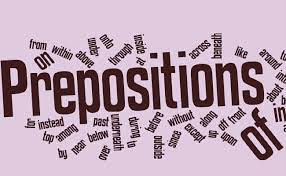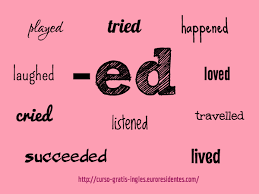El significado del verbo talk en español es: hablar, dialogar, conversar; normalmente se utiliza en conversaciones entre dos o más interlocutores y se pronuncia “tok”, haciendo un poco alargado el sonido de la o.
Para comprender mejor el uso de este verbo es imprescindible la práctica constante del mismo, la constancia hace la diferencia en cuanto a entender y pronunciar otro idioma.
Hay varias maneras de practicar: leyendo, escuchando música, viendo películas o conversando con amigos y familiares en inglés.
Como ejemplos se enumeran algunas oraciones donde se usa talk (en pasado):
- I talked to Helen about my job last week
Ai tolked tu jelen abot mai yob las uik
Yo hablé con Helen sobre mi trabajo
- Karem talked with Chris and convinced him to come
Karem tolked uit Chris and convinced jim tu com
Karem habló con Chris y lo convenció de venir
- When was the last time you talked with Denis?
Uen uas di last taim yu tolked uit Denis?
¿Cuándo fue la última vez que hablaste con Denis?
- I know they talked with you
Ai nao dei tolked uit yu
Sé que ellos hablaron contigo
- She talked about the homework
Chi tolked abot di jomuork
Ella hablò acerca de la tarea
Hoy hablamos de:
¿Cuál es el pasado Continuo de Talk?
El pasado continuo en inglés, se refiere a acciones que estaban pasando en un momento preciso de la conversación. Con este verbo se suele indicar que el pasado no es lejano (en otra época), sino que el evento o situación ha pasado justo cuando se mantenía la conversación.
Para construir las oraciones se suele usar el verbo To Be como auxiliar, en cada caso: interrogativa, afirmativa y negativa y se agrega la terminación ing en el verbo utilizado para indicar la acción.
Was/Were + sujeto + verbo talk (agregando ing) + complemento(Interrogativa)
Yes, sujeto + was/were + verbo talk (agregando ing) + complemento (Afirmativa)
No, sujeto + was/were + not + verbo talk (agregando ing) + complemento (Negativa)
Ejemplos:
- Was I talking with you in this moment?
Yes, I was talking with you in this moment
No, I wasn`t talking with you in this moment
- Was she talking with Peter in her houseright now?
Yes, she was talking with Peter in her House right now
No, she wasn`t talking with Peter in her house right now
- Were Carla and Terry talking about the theme last night?
Yes, they were talking about the theme last night
No, they weren`t talking about theme last night
¿Cuál es el Simple Past de Talk?
Por ser talk un verbo regular, para construir el pasado simple solo se le añade la terminación ed.
I talked = Yo hablé
You talked = Tu hablaste
She/He talked = Ella/Él habló.
We talked = Nosotras/os hablamos
You talked = Ustedes hablaron
They talked = Ellas/os hablaron
Para construir oraciones interrogativas con verbos regulares e irregulares (por ejemplo talk),se debe usar un auxiliar en pasado: Did en este caso es ese verbo auxiliar.
Did + sujeto+ verbo en presente + complemento (Oraciones interrogativas)
Yes + Sujeto+ verbo en pasado simple (regular o irregular) + complemento (Oraciones afirmativas)
No + Sujeto + Did not o Didn’t + verbo en presente+ complemento (Oraciones negativas).
A continuación se enumeran algunas oraciones como ejemplos:
- Did you talk of geography with your teacher in the class this morning?
Yes, I talked of geography with my teacher in the class this morning
No, I didn`t talk of geography with my teacher in the class this morning
- Did she talk with her boyfriend about the travel to Mexico yesterday?
Yes, she talked with her boyfriend about the travel to Mexico yesterday
No, she didn`t talk with her boyfriend about the travel to Mexico yesterday
- Did you talked of money with your father last night?
Yes, I talk of money with my father last night
No, I didn`t talk of money with father last night
¿Cómo conjugar Talk?
Present
- I talk
- You talk
- She/he talks
- We talk
- You talk
- They talk
Present continuous
- I am talking
- You are talking
- She/he is talking
- We are talking
- You are talking
- They are talking
Simple past
- I talked
- You talked
- He/she/ talked
- We talked
- You talked
- They talked
Past continuous
- I was talking
- You were talking
- He/she was talking
- We were talking
- You were talking
- They were talking
Present perfect
- I have talked
- You have talked
- He/she has talked
- We have talked
- You have talked
- They have talked
Present perfect continuous
- I have been talking
- You have been talking
- He/she has been talking
- We have been talking
- You have been talking
- They have been talking
Past perfect
- I had talked
- You had talked
- He/she had talked
- We had talked
- You had talked
- They had talked
Past perfect continuous
- I had been talking
- You had been talking
- He/she had been talking
- We had been talking
- You had been talking
- They had been talking
Future
- I will talk
- You will talk
- He/she will talk
- We will talk
- You will talk
- They will talk
Future continuous
- I will be talking
- You will be talking
- He/she will be talking
- We will be talking
- You will be talking
- They will be talking
Future perfect
- I will have talked
- You will have talked
- He/she will have talked
- We will have talked
- You will have talked
- They will have talked
Future perfect continuous
- I will have been talking
- You will have been talking
- He/she will have been talking
- We will have been talking
- You will have been talking
- They will have been talking
Simple Past
El pasado simple es utilizado cuando se habla de una acción concreta, que ha comenzado y acabado en el pasado inmediato o de corta data (yesterday, last night, this morning, etc), este tiempo verbal suele equivaler al pretérito indefinido español.
Se usa frecuentemente con adverbios de tiempo tales como: last year, yesterday, last night, entre otros.
En este tiempo verbal para construirlo es necesario añadirle ed a talk (talked), por ser un verbo regular y se usa para todos los pronombres personales.
- I talked
- You talked
- He/she/ talked
- We talked
- You talked
- They talked
Past Perfect
El Past Perfect (pasado perfecto) se forma añadiendo had + participio pasado del verbo talk (en este caso); ejemplo: I had asked.
En este tiempo verbal se hace referencia a situaciones, acciones o estados que comenzaron en el pasado y que son anteriores a otra situación, acción o estado que también es pasada.
El orden de la forma negativa en una oración es la siguiente:
Sujeto + verbo auxiliar had + not y Past Participle del verbo. También puede usarse en lugar del auxiliar had y el término not, la contracción hadn’t en las frases negativas, por ejemplo: She hadn’t visited.
Un ejemplo:
I hadn`t asked
Para la forma interrogativa se usa el verbo auxiliar had , quedando estructurada de la siguiente manera:
Had + sujeto + Past Participle del verbo en este caso talk.
Un ejemplo:
Had you decided?
En la forma afirmativa se estructura igual: yes con el verbo had y el participio pasado del verbo en este caso talk.
Por ejemplo:
Yes, I had asked.
Past Continuous
Para formar el pasado continuo en inglés se utiliza el verbo auxiliar “To Be” y el verbo en este caso talk + ing.
El verbo auxiliar “To Be” si está en el pasado se utiliza: was/were, según el pronombre personal con el que se está trabajando.
Ejemplo:
I was talking with my friend Laura
We were talking in the academy
Past Perfect Continuous
El past perfect continuous, es el tiempo verbal del pasado que señala que una acción o situación se estaba realizando hasta que otra acción ocurrió.
Se forma conjugando los verbos auxiliares “had” y “been” con el verbo principal que va acompañado del gerundio “ing”.



